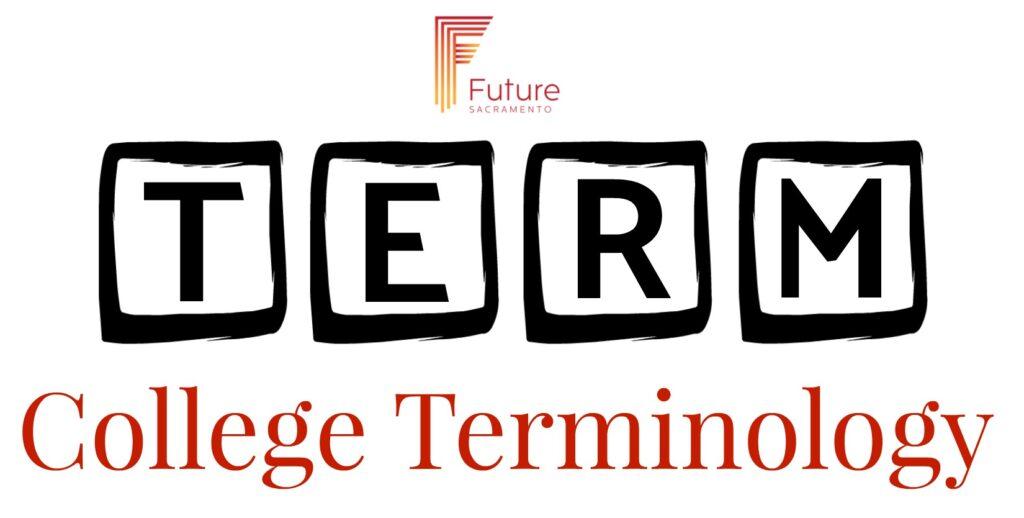Distance Decisions – College Choice Financial Fit
Include cost as one of the key factors for

Elective: A class you can take that is not specifically required for high school graduation or to complete a college major or minor. College-preparatory elective aka is “one year (two semesters) in the “g” subject area, and is in addition to approved high school minimum admission requirements (“a-g”) courses. Keep in mind that taking approved high school (“a-g”) courses isn’t the only way to satisfy these requirements. You also may meet them by completing college courses or earning certain scores on SAT, Advanced Placement or International Baccalaureate exams. Honors-level elective courses categorized specifically in the “g” subject area will demonstrate distinctive features that set them apart from non-honors coursework covering the same discipline(s).
Extracurricular: Activities or groups you belong to outside of class, such as sporting teams, clubs and organizations – other pursuits outside the classroom. Here’s something else you should know: Extracurriculars also play a part when you apply to colleges. Most college applications ask about your activities. That’s because the things you do in your free time reveal a lot about you — in ways that grades and test scores can’t. Your accomplishments outside the classroom show what you’re passionate about and that you have qualities valued by colleges. Learn more
Kinds of Activities:
Retention Rate: The percentage of a school’s first-time, first-year undergraduate students who continue at that school the next year. For example, a student who studies full-time in the fall semester and keeps on studying in the program in the next fall semester is counted in this rate.
Admission Tests vs Placement Tests:
Admission Tests also known as college entrance exams, these are tests designed to measure students’ skills and help colleges evaluate how ready students are for college-level work. The ACT and the College Board’s SAT are two standardized admission tests used in the United States. The word “standardized” means that the test measures the same thing in the same way for everyone who takes it.
Placement Tests measure the academic skills needed for college-level work. They cover reading, writing, math and sometimes other subjects. Placement test results help determine what courses you are ready for and whether you would benefit from remedial classes.
Accreditation – The recognition that a college or university maintains standards necessary for its graduates to gain admission to other reputable institutions of higher learning or to achieve credentials for professional careers. Accreditation is a rigorous evaluation and appraisal of the educational quality. The goal of accreditation is to ensure that education provided by institutions of higher education meets acceptable levels of quality. One of the first steps any prospective student should take before enrolling in a college or university, is to verify whether or not the school is accredited by a recognized accrediting agency.
Pedagogy – The method and practice of teaching, especially as an academic subject or theoretical concept.
Syllabus – A description of a course which also lists the dates of major exams, assignments and projects.
Interest – A loan expense. Interest is money paid to the lender in exchange for borrowing money. The expense is calculated as a percentage of the unpaid principal amount of the loan.
Subsidized – to support (an organization or activity) financially. synonyms: give money to, pay a subsidy to, contribute to, invest in, sponsor, support, fund, finance, underwrite. A “subsidized” loan provided to students based on financial need for which the federal government generally pays the interest that accrues while the borrower is in an in-school, grace, or deferment status, and during certain periods of repayment under certain income-driven repayment plans. In short, Direct Subsidized Loans have slightly better terms to help out students with financial need.
Verification – The review process in which the financial aid officer requests documentation from a financial aid applicant to verify the accuracy of the application. This is the process your school uses to confirm that the data reported on your FAFSA form is accurate. Your school has the authority to contact you for documentation that supports income and other information that you reported. If you’re selected for verification, don’t assume you’re being accused of doing anything wrong. Some people are selected at random; and some schools verify all students’ FAFSA forms. All you need to do is provide the documentation your school asks for—and be sure to do so by the school’s deadline, or you won’t be able to get financial aid.
Packaging – A financial aid administrator may tell you they are “packaging” you financial aid awards. This the term used to describe their process of combining various types of student aid (grants, loans, scholarship and federal work-study) in the to attempt to meet a student’s financial need. A Financial Aid Package is the total amount of financial aid a student receives.
Include cost as one of the key factors for
Weekly digest of information and resources for college applications,
Weekly digest of information and resources for college applications,
March 2: The most important deadline for Cal Grants is

Future Foundation of Sacramento
PO Box 9
Rancho Cordova, CA 95741